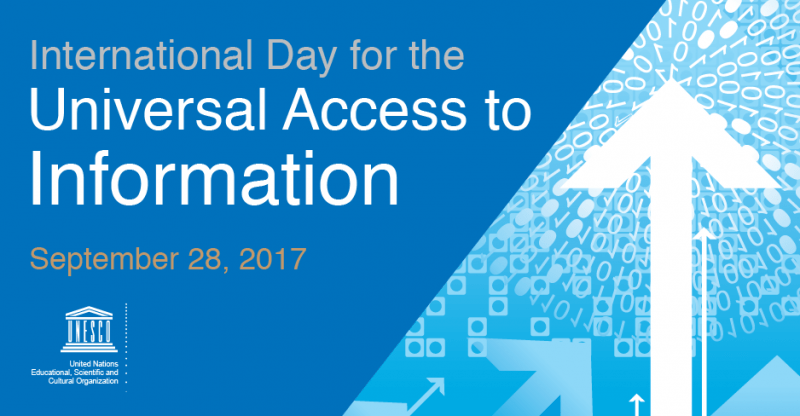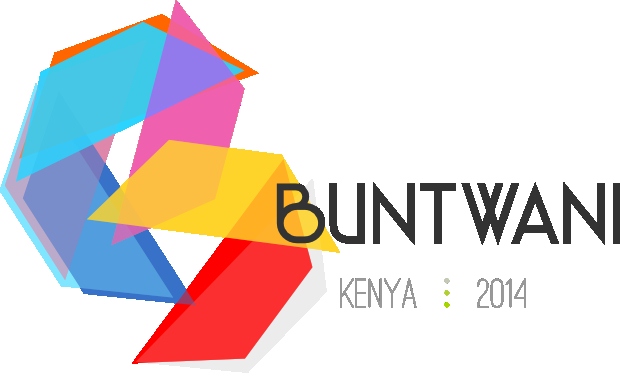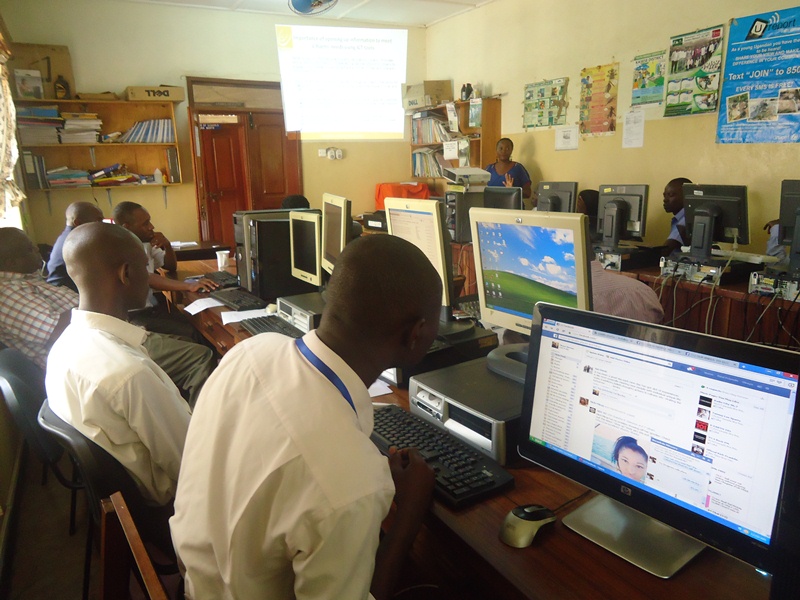By Edrine Wanyama |
The annual celebration of the International Day for Universal Access to Information (IDUAI) on September 28 is aimed at highlighting the importance of access to Information (ATI) as a cornerstone of all other rights. This year’s IDUAI celebrations were held in Mauritius, organised by the United Nations Educational, Scientific and Cultural Organisation (UNESCO) as part of the E-learning Africa summit (E-Summit). The summit is a fora for deliberation on issues of access to learning and vocational training, access to information, equality and quality in education, literacy and governance with prioritisation of sustainable development solutions.
The Collaboration on International ICT Policy for East and Southern Africa (CIPESA) participated at the e-Summit, making contributions on open access to information and the prerequisites for ATI, including highlighting the need for a conducive policy, legislative and regulatory environment to ensure universal access to information in Africa. Among the measures proposed at the meeting were the full recognition of ATI by more African states supported by the implementation of ATI laws and regulations which effectively empower citizens to demand for information.
Discussions at the summit also entailed a call for governments to ease access to information across multiple platforms including online, in print and through traditional media, alongside clear procedures on how information can be accessed in instances when it is not publicly available. Further, there should be efforts to minimise the costs of accessing information as well as making clear provision for timely information request processing, response and complaints handling mechanisms. A key enabler of the realisation of ATI in many countries will be the repealing of draconian and conflicting legislation and putting in place robust personal data protection measures.
Meanwhile, at the Forum on Internet Freedom in Africa hosted by CIPESA in Johannesburg, South Africa, there was emphasis on the need for governments to limit exemptions to accessible information, improve on data storage mechanisms and systems, provide for mandatory disclosure of information and put in place strong and functional penal mechanisms against information officers who deny citizens information.
Access to information (ATI) is a fundamental human right recognised by international human rights instruments, including articles 19 in both the Universal Declaration of Human Right and the International Covenant on Civil and Political Rights. These articles provide for, among others, the right to freedom of opinion and expression including receiving and imparting information and ideas through media. ATI is also recognised in articles 13(1) and 17 of the Declaration on the Rights of the Child; article 15 of the United Nations Declaration on the Rights of Indigenous People; and the United Nations General Assembly Resolution 59 (1).
The summit brought together participants from all the 54 African countries. However, African countries continue to grapple with enacting ATI laws. Out of 54 countries, only 22 have enacted ATI laws. Additionally, these existing laws have been criticised for failing to meet international minimum standards, with limitation to access outweighing access rights.
Despite the overwhelming participation of African countries, the dilemma remains in the low response to ATI legislation. It should be noted that the lack of ATI legislation negatively impacts accountability and transparency by the state, which are tenets grounded on access to information.
ICT4Democracy in East Africa Network to Participate in Inaugural Buntwani Conference
The ICT4Democracy in East Africa network will participate in the first Buntwani conference scheduled to take place October 7–8, 2014 in Nairobi, Kenya. The conference is aimed at exploring the potential of Information and Communication Technologies (ICTs) in strengthening citizen engagement and participation in Africa.
The network is made up of organisations pursuing projects that are tackling issues such as corruption, service delivery, respect for human rights, and civic engagement in Kenya, Uganda and Tanzania. The shared goal is to collaboratively leverage on ICTs as tools for promoting good governance and democratisation.
As the use of ICTs in East Africa grows steadily, driven by the availability of cheaper smart phones and the popularity of social media platforms, so does the opportunity through which to utilise these very tools and platforms as avenues for transparency and accountability in governance. In Kenya, Tanzania and Uganda, mobile access rates have grown to beyond 50% of the population – with Kenya reporting a 78% mobile access rate, Uganda (52%) and Tanzania (64%). Internet use has concurrently risen. Internet access in Kenya currently stands at 53% of the population, while Uganda stands at 22% and Tanzania (11%). It is upon this foundation that the ICT4Democrarcy in East Africa network pursues its work leveraging on tools including mobile messaging (short message services), FM radio, social media like Facebook and Twitter, toll free call centres, crowd sourcing platforms as well as direct community engagement.
The network is comprised of seven partner organisations including the Women of Uganda Network (WOUGNET), Transparency International Uganda (TIU), iHub Research (Kenya), the Kenya Human Rights Commission (KHRC), the Commission for Human Rights and Good Governance (Tanzania), the Collaboration on International ICT Policy in East and Southern Africa (CIPESA) and Toro Development Network (ToroDev). CIPESA is the regional coordinator of the network which is supported by the Swedish Programme for ICTs in Developing Regions (Spider) and the Swedish International Development Cooperation Agency (Sida).
Network partners primarily work with grassroots based organisations, local governments, policy makers, voluntary social accountability committees (VSACs), the tech community, civil society organisations and media in the use and promotion of ICTs in governance.
At Buntwani, the network partners will be sharing their experiences in sessions on technology for transparency, avenues for citizen participation, and the motivations and demotivations of using ICT tools for governance, among others.
Network project summaries
| Partner | ICT4Democracy in East Africa Project activity |
| CIPESA(ICT4Dem regional coordinator) | The ‘iParticipate Uganda’ project aims to catalyse the role of ICTs in citizens’ engagement and participation in governance. The project documents and publicises open governance, builds the capacity of media, public officials, citizens and other duty bearers in the use of ICTs for democracy, provides support to three grassroots ICT access centres and researches the ICT knowledge, practices and attitudes of citizens in Uganda. CIPESA is also undertaking an analysis of ICT legal and regulatory frameworks in Kenya, Uganda and Tanzania. |
| CHRAGG | CHRAGG has implemented a toll free Short Messaging Services (SMS) platform in Tanzania for citizens to utilise their mobile phones to lodge human rights violations and complaints. The project has targeted women and youth in its campaign which is also increasing awareness of human rights in the country. The campaign to popularise the SMS system includes radio talk shows, prime time TV and radio jingles, distribution of flyers, TV adverts as well as visual and performance acts through dance troupes. |
| iHub | iHub is exploring the interaction between governments and citizens through ICT tools in support of civic participation, service delivery, transparency, accountability and access to information. The insights are being sought in Kenya, Uganda and Tanzania through a series of field studies, focus group discussions, surveys, interactions with developers and literature reviews. The results of this work are expected to aid the implementation of initiatives that use ICT to monitor public services delivery, fight corruption and improve public sector transparency. |
| KHRC | The mentoring of grassroots based Human Rights Networks (HURINETS) in Kenya is key to KHRC’s project. The organisation is partnering with 10 HURINETS to increase their capacities to effectively use ICTs such as crowdmaps, blogs, Twitter and Facebook in their advocacy work and to increase their role in promoting human rights. |
| TIU | A toll free call centre forms the foundation of TIU’s Lira based project. Voluntary Accountability Committees (VACs) are playing the key role of monitoring health service delivery at health centres in remote areas in Lira and Oyam district in Northern Uganda. The project empowers citizens to demand social accountability of health workers in the region. TIU verifies reports of health service delivery challenges from VACs and the public received at the call centre through field visits before raising them with the respective authorities for remedial action. |
| ToroDev | Working with 15 rural advocacy forums and the Rwenzori Journalists Forum, ToroDev is motivating citizen activism in Western Uganda in pursuit of transparency and accountability monitoring. Local FM radio stations are used as hubs for information and knowledge sharing sourced through the internet (social media) and mobile phones (SMS) during which there is active engagement with local leaders and advocacy forum members on critical community issues. |
| WOUGNET | Northern Uganda is the focus area of this project which empowers the local communities in five districts (Apac, Kole, Oyam, Gulu and Amuru) to monitor good governance and service delivery through the use of radio stations, digital cameras, mobile phones, Facebook, Twitter, blogs and the crowd sourcing platform Ushahidi. The project primarily targets women in Community Based Organisations (CBOs) and women groups. |
The Buntwani conference (www.buntwani.org) will see the gathering of government officials, civil society organisations, the private sector, media and other sectoral players to share knowledge and information relating to citizen engagement and participation through ICTs. The conference will also provide a platform for technology innovators to showcase tools that are available for strengthening citizen engagement and participation as well as improvement of service delivery, and discuss with various stakeholders the strategies that have been used to make these tools a success.
Connect with ICT4Democract in East Africa online
Web: www.ict4democracy.org
Facebook: www.facebook.com/ict4dem
Twitter: @ICT4DemEA
Email: [email protected]
About CIPESA: ICT4Democracy in East Africa Regional Coordinator
The Collaboration on International ICT Policy in East and Southern Africa (CIPESA) is one of two centres established in 2004 under the Catalysing Access to Information and Communications Technologies in Africa (CATIA) initiative, which was mainly funded by the UK’s Department for International Development (DfID). CIPESA focuses on decision-making that facilitates the use of ICT in support of development and good governance. Besides the ICT4Democracy in East Africa project, CIPESA is spearheading the Open Net in Africa project (www.opennetafrica.org) to promote internet freedoms in a number of African countries, including Burundi, Ethiopia, Kenya, Rwanda, South Africa, Tanzania and Uganda. Under the Ask Your Government Uganda initiative (www.askyourgov.ug), CIPESA, in partnership with the Office of Prime Minister (OPM) Uganda and the Africa Freedom of Information Centre (AFIC) promotes citizen’s right to access to information.
| Collaboration on International ICT Policy in East and Southern Africa (CIPESA)Plot 156-158 Mutesa II Road, Ntinda, P.O. Box 4365, Kampala, Uganda; Tel: +256 414 289 502 | Email: [email protected] Website: www.cipesa.org | Facebook: www.facebook.com/cipesaug |Twitter: @cipesaug |
Local leaders in Kasese District Trained in e-Governance
This month, the Collaboration on International ICT Policy in East and Southern Africa (CIPESA) and the E-Society Resource Centre Kasese trained local leaders in Kasese district in the use of ICTs for improved governance and service delivery. During the March 20-21 2014 workshop, local leaders of the western Uganda district were also trained in using ICTs for information sharing and promoting citizen participation.
Speaking at the workshop, District Information Officer John Thawite urged local leaders to break away from the culture of secrecy and work in accordance with the 2005 Uganda Access to Information Act. “Meaningful participation in democratic processes requires informed participants hence the need for increased access to information,” he said.
However, Mr. Thawite noted some challenges to better access to information: poor facilitation for information officers, lack of ICT tools to process information requests, the Official Secrets Act of 1964 which bars public servants from releasing certain information, and poor coordination of information systems between departments.
During introductory sessions, participants were introduced to the basic elements of computer use, the internet and information security. Later, they were introduced to the concept of e-governance and its role in improving service delivery. The training included an interaction with the district e-government tools such as the district portal (www.kasese.go.ug), district discussion group (https://dgroups.org/iicd/kasese), E-library for district e-resources (https://elibrary.kasese.go.ug) and the district news portal (https://kasesenews.blogspot.com/).
The workshop also sought to enhance the leaders’ capability to engage with citizens through social media, and illustrated how this engagement could contribute to improved services delivery. According to Alexa.com, Facebook, Twitter, blog post and youtube are among the top ten accessed websites in Uganda and their potential in catalysing citizen participation in governance was emphasised.
Leaders were further encouraged to use the Rwenzururu facebook group (https://www.facebook.com/groups/nokasesesplit/) created in 2012 by community members in Kasese during a CIPESA citizen journalism training to discuss prevailing issues in the region..
Participants welcomed the training with one saying that he would henceforth be able to get access more information about various operations of the government through the various e-governance platforms shared. Another participant asked the e-society Resource Centre to work with heads of departments so that they always send their budgets, minutes of meetings, work plans and other communication to the e-platforms.
CIPESA has since 2011 spearheaded the iParticipate Uganda project. Through grassroots based ICT access centres in Eastern, Western and Northern Uganda, CIPESA creates awareness and builds the capacity and skills of citizens, media and local government to leverage ICTs to catalyse civic participation, democracy monitoring and access to information in Uganda. The E-society Resource Center Kasese is CIPESA’s western region partner. The centre provides support, promotes ICT literacy and the use of ICT for transparency in the Kasese local government.
Article complied by Mr. Samuel Mumbere – E-Society Resource Centre Kasese and Ms. Lillian Nalwoga – CIPESA



